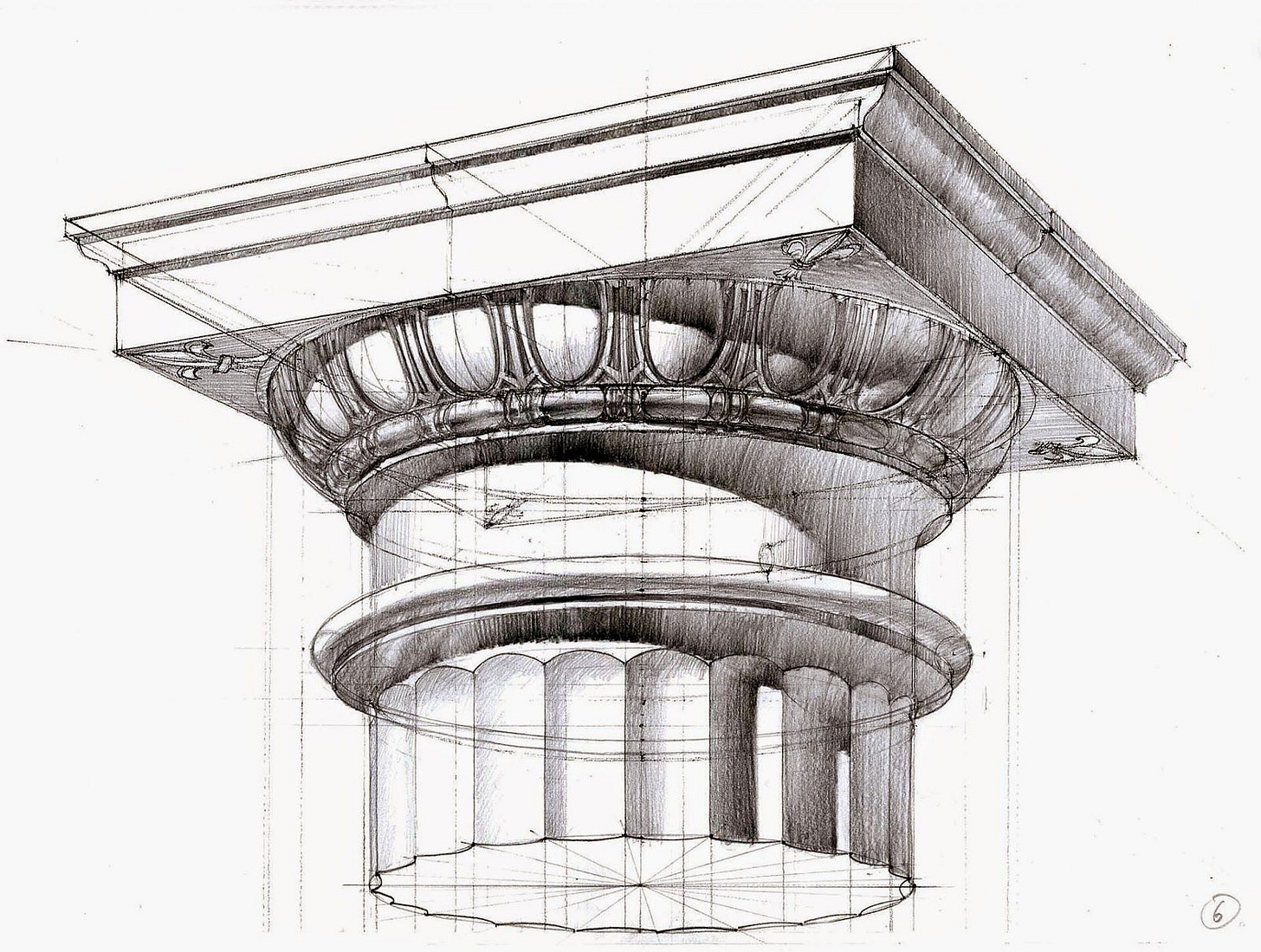Beauty & the Grammar of Stone - Part III
The Doric, the earliest of the three classical orders, was a systematized response to the problem of upholding weight with grace and disciplining the chaotic world through number, rhythm, and stone.
This is the second article in a series on Classical Architecture. A new article in the series will be published each Saturday morning.
The Doric Order: Greece's First Architectural Language
The Doric Order, Greece’s primordial architectural tongue, did not emerge fully formed like Athena from Zeus’s skull but rather through an agonized, iterative process of translation—wood to stone, function to form, impermanence to eternity. It was the earliest of the three classical orders, a systematized response to the problem of upholding weight with grace, a solution hammered out in sun-bleached quarries and sweat-streaked workyards by artisans who, knowingly or otherwise, inscribed in their chiseling a metaphysical proposition: that the chaotic world might be disciplined through number, rhythm, and stone.
It was not merely an architectural style; it was a linguistic event, a new alphabet of mass and volume, a vocabulary of load and counterload, its syntax carved into the landscape of the Mediterranean world. What began as the rough-hewn, tree-trunk columns of some long-lost Mycenaean shrine evolved into the muscular clarity of the Doric temple, the physical manifestation of a people who saw the world not as a chaotic sprawl of organic growth but as something to be measured, ordered, and brought into alignment with principles both human and divine. Here, in the primitive sanctuaries of Olympia, in the hulking Sicilian behemoths, in the rubble of archaic temples scattered across Attica and the Peloponnese, we glimpse the first faltering strokes of an architectural grammar that would come to shape the nascent idea of Western civilization.
The early iterations, thick-limbed and brute, bore the marks of an age still grappling with the recalcitrant density of stone, craftsmen learning—by trial, by accident, by generational instinct—how to coax rigid material into the semblance of organic life.
Keep reading with a 7-day free trial
Subscribe to Classical Compass Rose to keep reading this post and get 7 days of free access to the full post archives.






